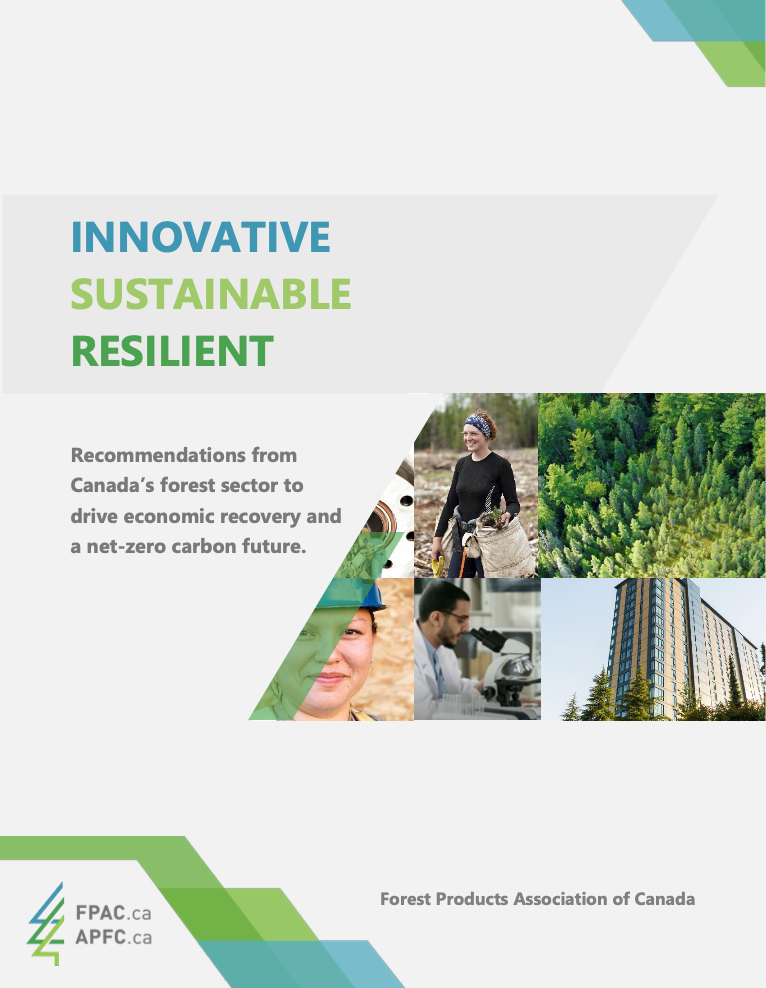Article /
Innovative Sustainable Resilient: Recommendations from Canada’s Forest Sector to Drive Economic Recovery and a Net-Zero Carbon Future

Driving Opportunity and Recovery Together
This resource was submitted by the Climate Risk Institute for theCanAdapt Climate Change Adaptation Community of Practice.
This article is an abridged version of the original text, which can be downloaded from the right-hand column. Please access the original text for more detail, research purposes, full references, or to quote text.
The COVID-19 global pandemic has affected all Canadians and businesses across the country. Indeed, this unprecedented crisis has created uncertainty and widespread disruption to our economy and our lives which cannot be understated. Canada’s forest sector is grateful for the efforts of our essential front-line workers who have continued to work while diligently ensuring the health and safety of all.
As the federal government’s 2020Speech from the Thronestates, “We owe an immense debt tothose who served and still serve on the frontlines, to health care personnel and essentialworkers, women and men in uniform, volunteers and leaders, everywhere in the country.”
As a designated essential industry, the forest sector remains committed to doing our part in the fight against COVID-19. Our industry stepped up immediately, in a safe and meaningful way, to ensure that Canadians could get the sustainably-sourced, forest-based products they depended on during the pandemic–from toilet paper to paper towels, sanitary wipes to diapers, lumber to wood pellets and biofuels. Our sector has delivered on our promise to Canadians by keeping our supply chain moving and our people safe.
Because of our commitment to innovation, our resiliency, and our long-term view of forest management and growth, the forestproducts sector is in a unique position to drive Canada’s post- pandemic economic recovery while providing solutions to build an even more sustainable and lower-carbon economy. By using thepower of Canada’s forests and our world-leading commitment to sustainable forest management we can secure inclusive growth, strengthen rural and northern communities, and help powerCanada along its path to a ‘net-zero’ carbon economy by 2050.
With these opportunities in mind, Forest Products Association of Canada (FPAC)–the voice of Canadian wood, pulp, paper, and bio-products producers nationally and internationally–is issuingInnovative, Sustainable, Resilient: Recommendations from Canada’s Forest Sector to DriveEconomic Recovery and a Net-Zero Carbon Futureto outline critical recommendations that will ensure economic opportunity for our sector and its people, while upholding important values that support human health, inclusive growth, and our environment.
